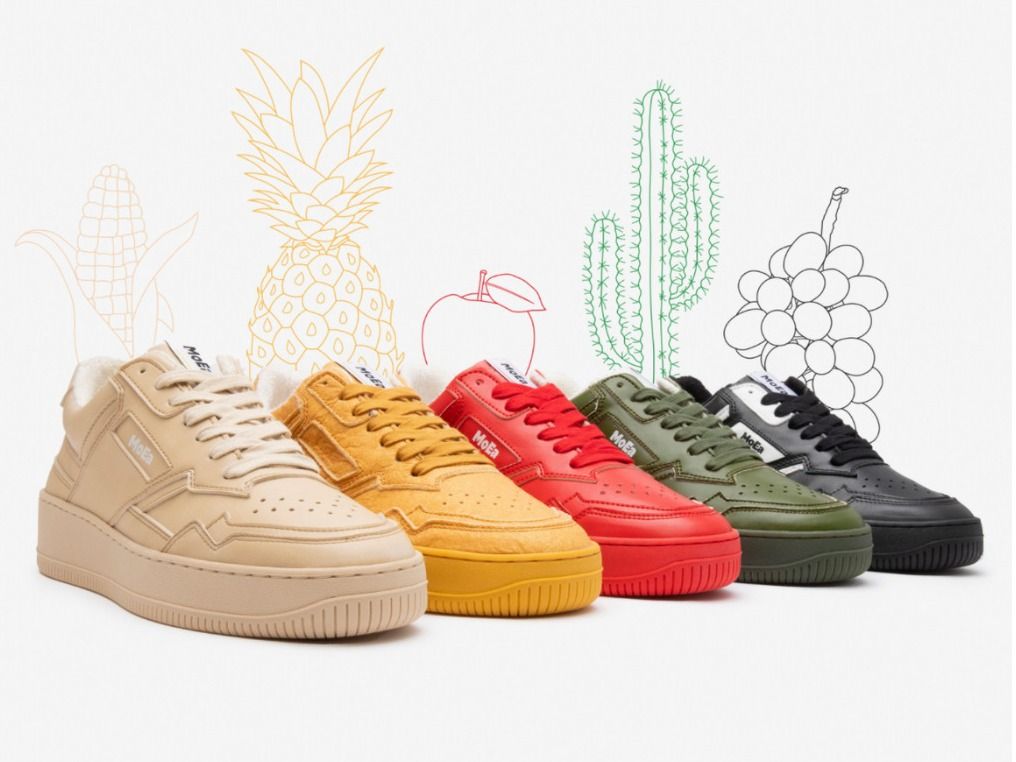Approved by curator

Added: Aug 03, 2021
Last edited: Sep 01, 2021
In order to tackle the detrimental impacts of the food waste problem and revitalise the footwear industry with its widespread uses of leather and plastic components that cause environmental and social concerns, MoEa has created alternative leather sneakers using food waste to replace leather and plastic. Made from apples, grapes, pineapple, cacti, and corn, the production of their sneakers emits 89% fewer carbon emissions than traditional leather.
According to the Food and Agriculture Organization, one-third of all food produced is lost or wasted each year. This is equivalent to around 1.3 billion tonnes of food, costing the global economy close to $940 billion each year. Food waste has its environmental impacts: food rotting in landfills releases methane, which is 28 times more potent than carbon dioxide, and if food waste were a country, it would be the third biggest emitter of greenhouse gases after the USA and China.
On the other hand, leathers and plastic components account for common materials of modern sneakers. Recognised as a major polluting industry, tannery waste from the leather industry contains chromium and other hazardous compounds which pose a significant threat to one's health and the environment. When released into the water systems, they can damage fish fills, incite respiratory problems, cause infections and congenital disabilities. At the same time, raising animals for leather requires vast amounts of feed, pastureland, water, and fossil fuels. The same applies to plastic: Amid all of its already-existing environmental concerns, a combination of different plastics stitched and glued in a sneaker's production adds to the difficulties of recycling.
Concerned with the alarming consequences of food waste and the non-promising environmental and societal impacts of the current sneaker industry, the French brand pioneered using food waste to create an alternative leather. Grape waste from the wine industry in Italy, apple waste from the juice industry, corn from no longer edible American corn, cactus from the Mexican desert, and waste pineapple leaves from the Philippines are all used to create the 'next-generation of sneakers'. The biomass is blended with stabilisers like organic cotton, bio-PU, or recycled plastic, depending on each plant used.
According to MoEa:
- A Life Cycle Assessment made by certified agency CLIMATE PLUS shows that the average carbon footprint of MoEa sneakers is 89% less than traditional leather sneakers.
- MoEa sneakers are tested for over a year, and they are as robust and durable as leather.
According to MoEa:
- 64% of MoEa's workforce are women, and the factory runs on 100% renewable energy. The production process is chromium-free
- MoEa was audited and is certified vegan by PETA
- The sneakers are recyclable and can be sent back after use
- MoEa is planning on becoming a B Corp brand and will keep exploring ways to continue reducing its carbon footprint


biobased materials
sneakers
alternative leather
